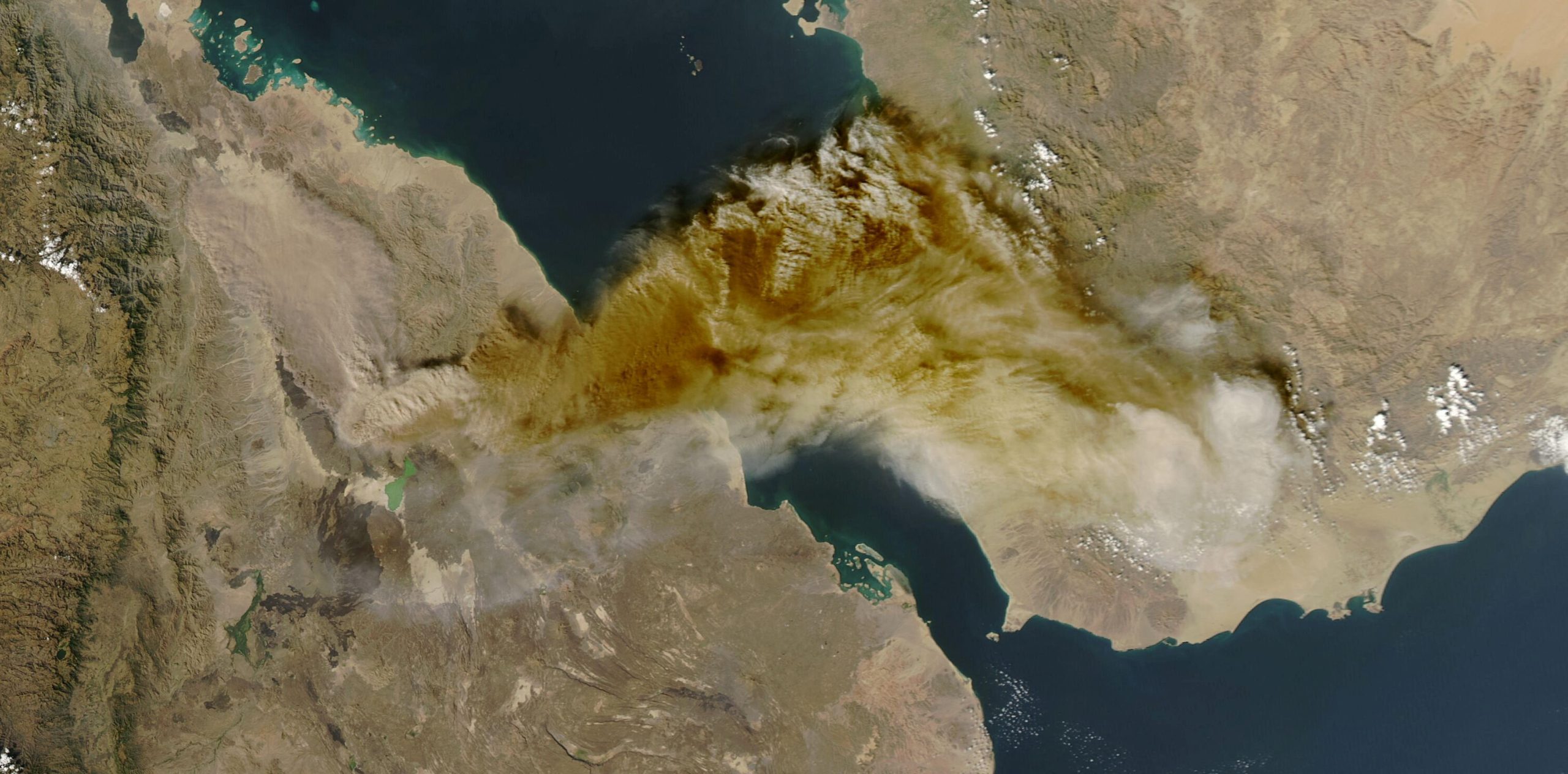
The Hayli Gubbi volcano in Ethiopia’s Afar region erupted on Sunday (November 23) morning, covering nearby villages in dust, according to local media.
According to the Smithsonian Institution’s Global Volcanism Program, this was the first eruption of Hayli Gubbi documented in the last 12,000 years.
Satellite imagery showed an ash cloud drifting over the Red Sea.
Local media also cited an official who said no casualties had been reported, but warned that the ash could impact the livelihoods of local livestock owners, as it reduces available grazing vegetation.
Indian airlines Air India and Akasa Air said on Tuesday they were cancelling some flights after ash plumes from the volcanic eruption disrupted operations.
Air India said it had cancelled 11 flights on Monday and Tuesday to make precautionary checks on aircraft that had flown over some locations after the eruption, following a directive to airlines from India’s aviation regulator.
Smaller peer Akasa said it had scrapped scheduled flights with Middle East destinations such as Jeddah, Kuwait, and Abu Dhabi scheduled during the two days.
The ash cloud is moving towards China and is expected to clear Indian skies by 1400 GMT Tuesday, the India Meteorological Department (IMD) said in a statement.
The volcano sent ash plumes up to 14 km (8.7 miles) high after the Sunday eruption.
On Tuesday, the ash had covered parts of Pakistan and northern India, according to tracking website Flightradar24, after crossing Yemen and Oman.



